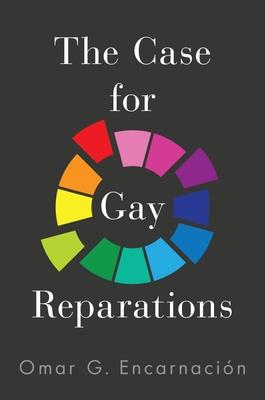
Omar G. Encarnacin draws upon the rich history of reparations to confront the legacies of genocide, slavery, and political repression and argue that gay reparations are a moral obligation intended to restore dignity to those whose human rights have been violated because of their sexual orientation and gender identity. Reparations are also necessary to close painful chapters of anti-LGBT discrimination and violence and to remind future generations of past struggles for LGBT equality. To this end, he traces America's dark and painful LGBT history--from colonial-era laws criminalizing homosexual conduct, to a postwar ban on homosexuals working in the federal bureaucracy, to the government's support of the junk-science underpinning the practice of "gay conversion" therapy promoted by the Christian Right. The book also examines how other Western democracies notorious for their repression of homosexuals--specifically Spain, Britain, and Germany--have implemented gay reparations. These foreign experiences reveal potential pathways for gay reparations in the United States. More importantly, they show that while there is no universal approach to gay reparations it is never too late for countries to seek to right past wrongs.
Omar G. Encarnacin draws upon the rich history of reparations to confront the legacies of genocide, slavery, and political repression and argue that gay reparations are a moral obligation intended to restore dignity to those whose human rights have been violated because of their sexual orientation and gender identity. Reparations are also necessary to close painful chapters of anti-LGBT discrimination and violence and to remind future generations of past struggles for LGBT equality. To this end, he traces America's dark and painful LGBT history--from colonial-era laws criminalizing homosexual conduct, to a postwar ban on homosexuals working in the federal bureaucracy, to the government's support of the junk-science underpinning the practice of "gay conversion" therapy promoted by the Christian Right. The book also examines how other Western democracies notorious for their repression of homosexuals--specifically Spain, Britain, and Germany--have implemented gay reparations. These foreign experiences reveal potential pathways for gay reparations in the United States. More importantly, they show that while there is no universal approach to gay reparations it is never too late for countries to seek to right past wrongs.
Hardcover
$27.99